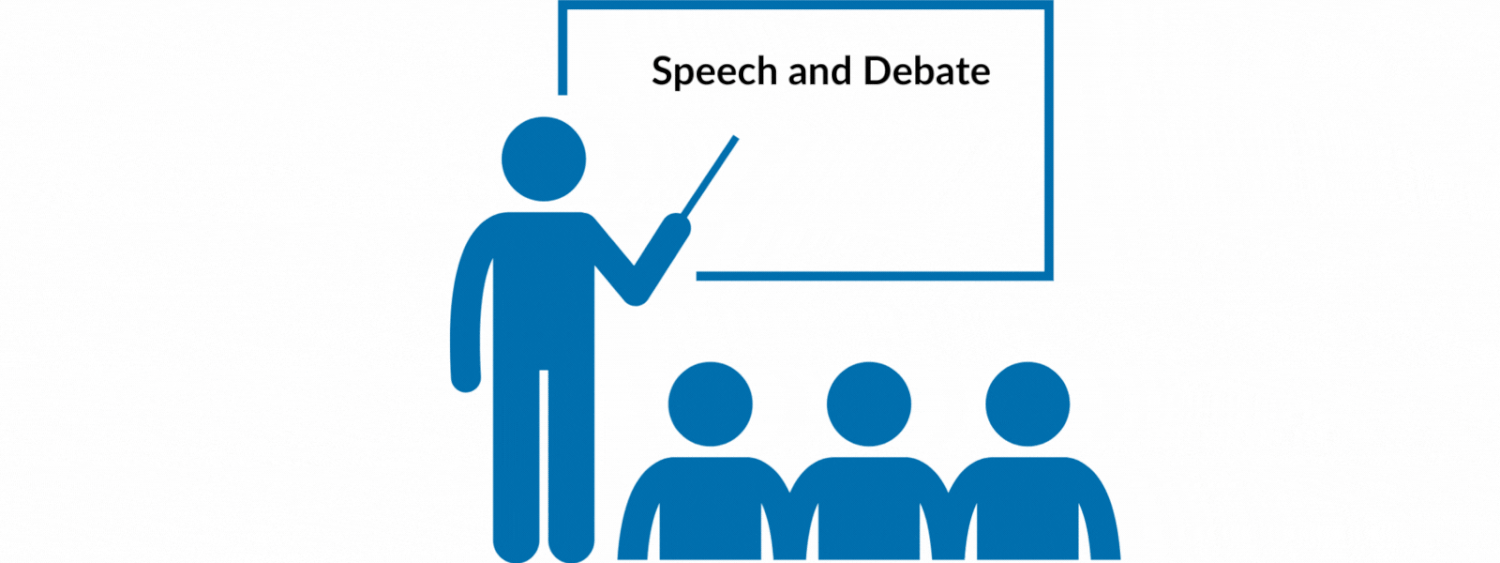Get Up From Your Chair to Change Your Community
Graham Haworth is a teacher at Independence High School in San Jose where he teaches English, AVID, and Journalism/Yearbook. He is also the Speech & Debate Co-Advisor. When he was a student in high school, he took a Speech class in high school where he learned the basics of Speech and Debate, but he was never on a Debate team.
He worked as a journalist for over a decade before becoming a teacher, so he spent many hours covering sometimes contentious school board meetings, city council meetings, and county supervisor meetings. Through this experience, he recognized the valuable role that a meaningful back-and-forth discussion in the community can serve.
The partnership with SVUDL aligns with Independence High School's mission organically as it is designed to meet students where they are currently and to give them every opportunity to learn and educate themselves about the world around them.
“Oftentimes, students ask ‘when will I ever use this in the real world?’ This is a question every high school student has asked themselves at some point. Through SVUDL, the real world comes directly to the students. The students are wrestling with challenges that the world and our community are facing right now. In a way, Speech and Debate represents the real world perhaps more than any other activity on campus. They are learning about not only real issues that are affecting real people right now, but they are learning how to form an opinion, how to back up that opinion with facts and research, and how to use that research to rebut counter-arguments. In short, students are thinking critically about the world around them. Critical thinking, in my opinion, is the basis for any civilized discussion, and without civilized discussion, how are we supposed to move forward as a society? It's an important question to ponder in today's increasingly fractured world,” reflected Graham.
The partnership with SVUDL creates new opportunities for students, and the experiences of Speech and Debate imparts the kind of skills students will use throughout their individual pathways.
“I think the most important skills students can learn through Speech and Debate are crafting arguments and counter-arguments on issues that they might not originally agree with – this skill allows students to think holistically about an issue, and to go beyond the argument that there are only two sides to any issue. In reality, the issues our students are debating are sophisticated and go beyond just what is right versus what is wrong. Being able to approach an issue thoughtfully, from all sides, broadens the minds of young people. It encourages them to remain open minded about a topic they may not originally have believed in, and this may lead to some empathy for those who may not believe in the same things. Empathy is something this society needs more of and although you don't have to agree with someone, if you know the reasons why they believe what they do, then a conversation is easier to have. This may lead to compromise and understanding,” said Graham.
The connection between SVUDL school partnerships and pathways to college and beyond often shows how debate carries over its impact into adulthood.
Graham Haworth
“I return to the concept of critical thinking – meaning ‘thinking about what you're thinking about’ – metacognition. Giving young people the skills to examine their own thoughts and beliefs leads to a more open-minded adulthood. So many people get stuck in their ways and beliefs at an early age. They can carry those beliefs with them throughout adulthood, even when faced with evidence that their beliefs are incorrect or even harmful in some ways. In fact, numerous studies have shown that many adults, when provided with research and facts that refute their beliefs, simply double-down on their original beliefs. This is harmful to a society that should rely on the free flow of ideas, on being able to accept that sometimes beliefs and opinions should change when presented with new evidence,” said Graham.
Students take this partnership, education, and life experience forward to make positive changes in their own community. “Advocates for change are needed in any community that wants to remain vital and responsive to the needs of the community as a whole. If the status quo is not working for large swaths of our community, critical thinkers are needed to spearhead discussions about what kind of change is best for the most number of people in a community. Critical thinkers can not only educate fellow community members, but they can also listen to what community members are yearning for in society. Speech and Debate students are well-equipped to not only let their voices be heard at city council meetings, in our state and national legislatures, and at our peaceful protests, but also between individual community members,” said Graham.
He has many hopes and dreams for the students participating in Speech and Debate. He'd love for his students to become the best possible versions of themselves, and to realize that education doesn't stop when you graduate from high school, or even college.
“Becoming a lifelong learner, and being open to education throughout their entire lives, – those would be lofty and meaningful goals I'd like to see all of my students achieve,” said Graham.
Graham also reflected on the weighty topic of the lines between Speech and Debate and the pandemic, distance learning equity issues, and protests against systemic and racial inequality.
“I think one of the most damaging byproducts of the pandemic was the isolation our young people felt, and many of them ventured to social media and other digital technology to try and fill that void. Unfortunately, technology and social media is a poor facsimile for real, face-to-face communication. While communication via social media is most often fairly shallow, speech and debate demands attention to detail and focus from its participants, which leads to deeper discussion and deeper understanding of the issues our world faces. For example, it's one thing to support or follow the Black Lives Matter movement on social media, or to change your profile pic to support marginalized groups, but that doesn't lead to real substantive change. Change comes from getting up from your chair, putting down the smartphone, and engaging with your community in real-time, in-person. These are the skills that Speech and Debate can teach,” said Graham.


